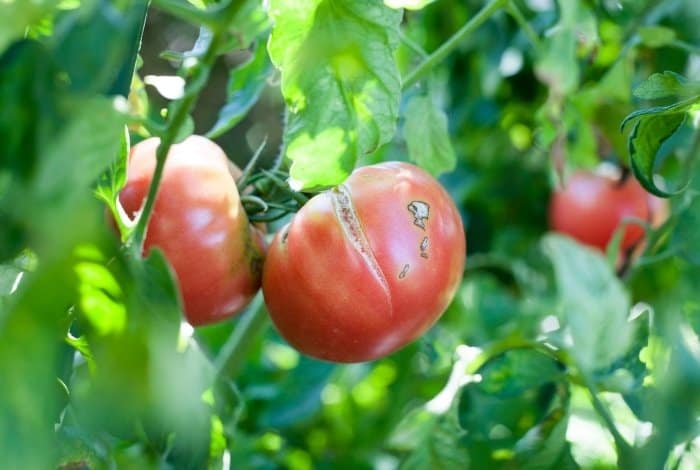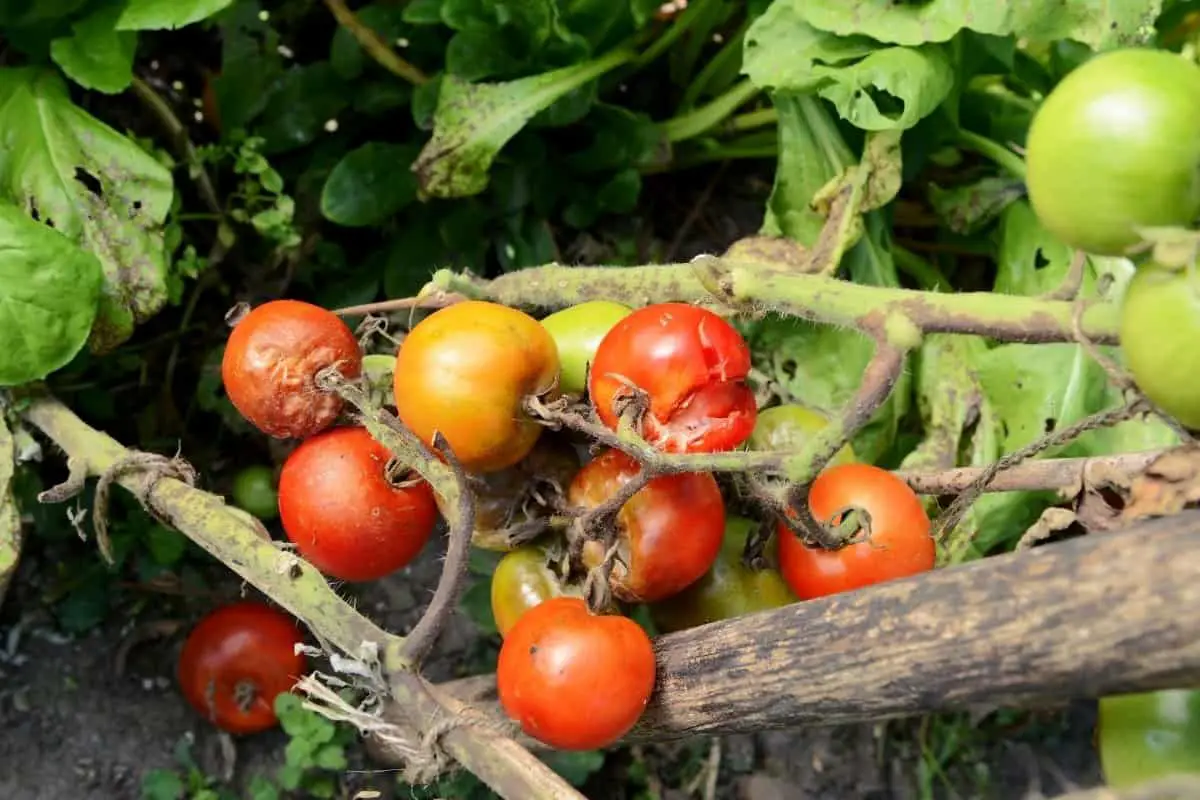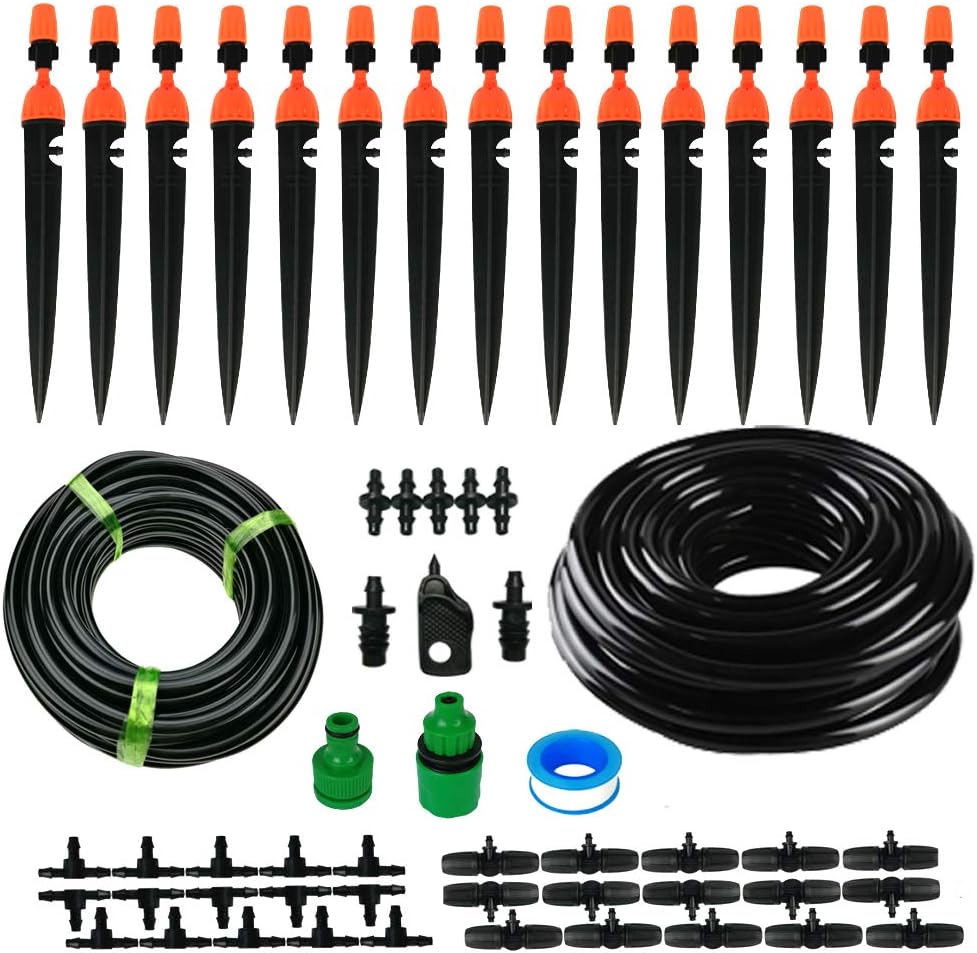Last Updated on January 19, 2022 by Tony Manhart
You grow your tomatoes the right way, nurture it, and watch it go from green, pink to juicy red fruit. One morning you decide to harvest, then suddenly, you find out it’s been split. Quite heartbreaking right? Well, we feel your pain!
So why do tomatoes split on the vine? The splitting of tomatoes is not uncommon. We will be discussing why they split and what you can do to prevent splitting re-occurrence.
Reasons Why Tomatoes Split on The Vine
The best-known reason why your tomatoes are cracking or splitting on the vine is because of water fluctuation.
Rapid Temperature Change and Irregular Watering
When your tomato grows during the drought period and you do not water regularly, there is a limited supply of water to your plant. If it rains suddenly, after going through the drought period, there will be a sudden inflow of water. Your thirsty tomatoes fruit will absorb so much water inside its juicy endocarp cavities. Therefore the inside grows faster and bigger than the outer skin, causing the outer skin to split.

This type of issue is most common in tomatoes that are ripe or almost ripe. This is because as they continue to grow and ripe, they absorb more water to grow more rapidly causing the split.
What Splitting of Tomatoes Does To Your Plant
When splitting occurs, your tomatoes are opened up to bacteria and fungi. This can attract disease-causing pests to your plant as the cracked tomatoes rotten.
Periods When Your Tomatoes are Prone to Splitting
Your tomatoes have a high chance of splitting or cracking at the end of summer. So try as much as possible to prevent this from happening.
How to Prevent Tomatoes from Splitting on the Vine
Tomatoes splitting can be quite frustrating especially when you planned to harvest them for a delicious fruity meal. It can be pretty difficult to manage these issues because it is a natural problem. But here are some things you can do to limit this splitting occurrence:
- Water regularly and correctly: tomatoes plant needs a lot of water. Water your plants regularly and correctly especially during the hot season. This will prevent your plant from experiencing shock from water deprivation whenever there is a heavy downpour. A better plan especially if you are mostly unavailable to water your plant regularly is to set a drip watering system.
- Mulching: mulching your tomatoes plant is an essential step to take to avoid your tomatoes from splitting. This will help keep in the moisture down to the root of your plant.
- Pick your tomatoes early: pick your tomatoes early especially when your zone is expecting a major downpour.
- Move your plant: if you are growing your tomatoes plant in a container, you can move them inside whenever there is a major downpour. This way, they don’t get overwhelmed by too much water. Also, you can move them into a greenhouse whenever the weather is too hot to prevent them from drought.
What To Do Split Tomatoes: Can You Eat Them?
You can eat the split tomatoes if you catch them early. Simply examine them and discard the ones that are rotten and have insects.
Bottom Line
Basically, the reason why your tomatoes split is because of irregular watering. So endeavor to always water your plant consistently.
FAQs
How do you keep tomatoes from splitting?
Tomatoes are a delicacy that we love to have, but they can be difficult to keep from splitting. There are many ways you can try to keep your tomatoes from splitting and there is probably a solution that works for you. One way is to help plants acquire more nutrients by adding compost or manure on top of the soil.
Another way to avoid splitting is to pick them when they are firm, but still slightly moist. If they are dry, they will split more easily.
What are the signs of over watering tomato plants?
Tomato plants generally don't need a lot of water, but they need consistent moisture that is free from air and light. If the leaves on your plant feel soft, there is probably too much water in the soil and you should stop watering it for a few days. When you do water it, be careful not to over-water because this can cause the roots to rot or fungus.
If you notice tomato plants have turned from green to light brown, this may be another sign that your plants are overwatered. There are a few telltale signs of overwatering tomato plants.
Tomato plants need to be watered about every 5-7 days depending on the weather and type of soil.
Can you eat tomatoes that split on the vine?
The answer to this question is yes, you can eat tomatoes that split on the vine as long as they are ripe. If you want to know when a tomato is ripe, cut it in half to see if the flesh is uniformly red.
Should I water tomatoes every day?
The answer is yes, tomatoes should be given water everyday. Watering your plant every day prevents disease and helps the tomato grow bigger and healthier. You should also change out their dirt once a week so that you can have a clean environment for your plants.
What fertilizer is best for tomatoes?
Tomatoes thrive on rich soil and ample water, so it’s important to ensure there are all the nutrients and minerals they could possibly need.
Tomatoes require potassium, phosphorus, magnesium and nitrogen. One way to determine which fertilizer is best for tomatoes is by analyzing the pH level of the soil, as well as its texture.
The best time to fertilize tomatoes is during their peak production period in summer months. It's important to remember that more fertilizer does not always mean better results for your plants.
How long can tomatoes go without water?
Tomatoes need fresh water to grow. They don't do well if they are taken out of their container too soon. The plant needs time to dry out the soil and establish roots before it can be watered again.
The average time for tomatoes to go without water is about three days. With a little more rain or watering, the plants usually recover within a week or so.
Is it OK to water tomato plants at night?
The importance of watering plants at night has been debated for years, but with all this research, there is no consensus yet on whether or not you should water them during the night.
Watering the plant at night may cause root rot, which can lead to death of the plant. Watering plants in the morning and then giving them about 6 hours of rest, allows for proper hydration.

Eunice is a gardener who loves to play in the dirt. She starts her day early in the morning, watering her plants and tending to her garden. She loves the smell of freshly cut grass and the feeling of sunshine on her back as she works. She‘s a master at creating beautiful flower arrangements and can often be found humming a tune as she tends to her plants. When she‘s not gardening, she loves to read books about nature and share her knowledge with others. Eunice loves gardening so much that she‘s even been known to talk to her plants!



